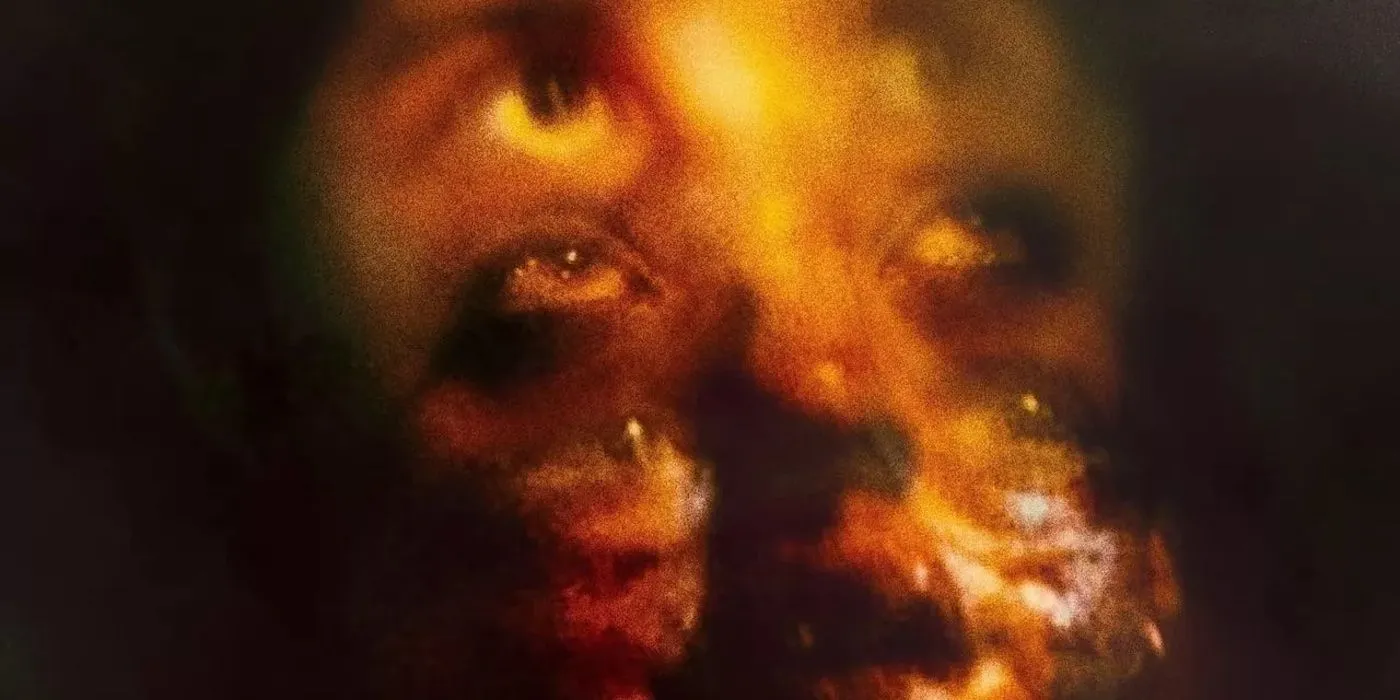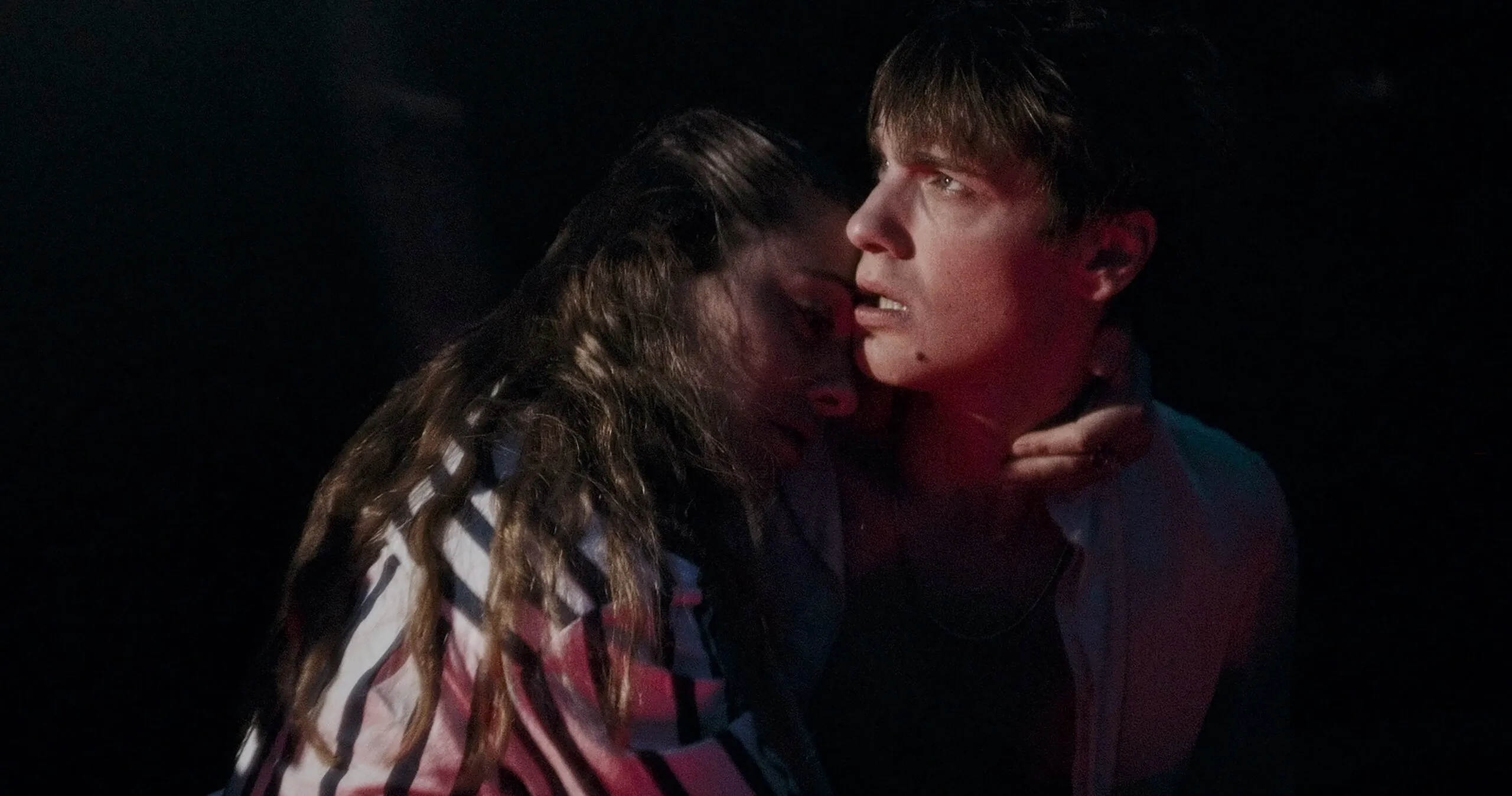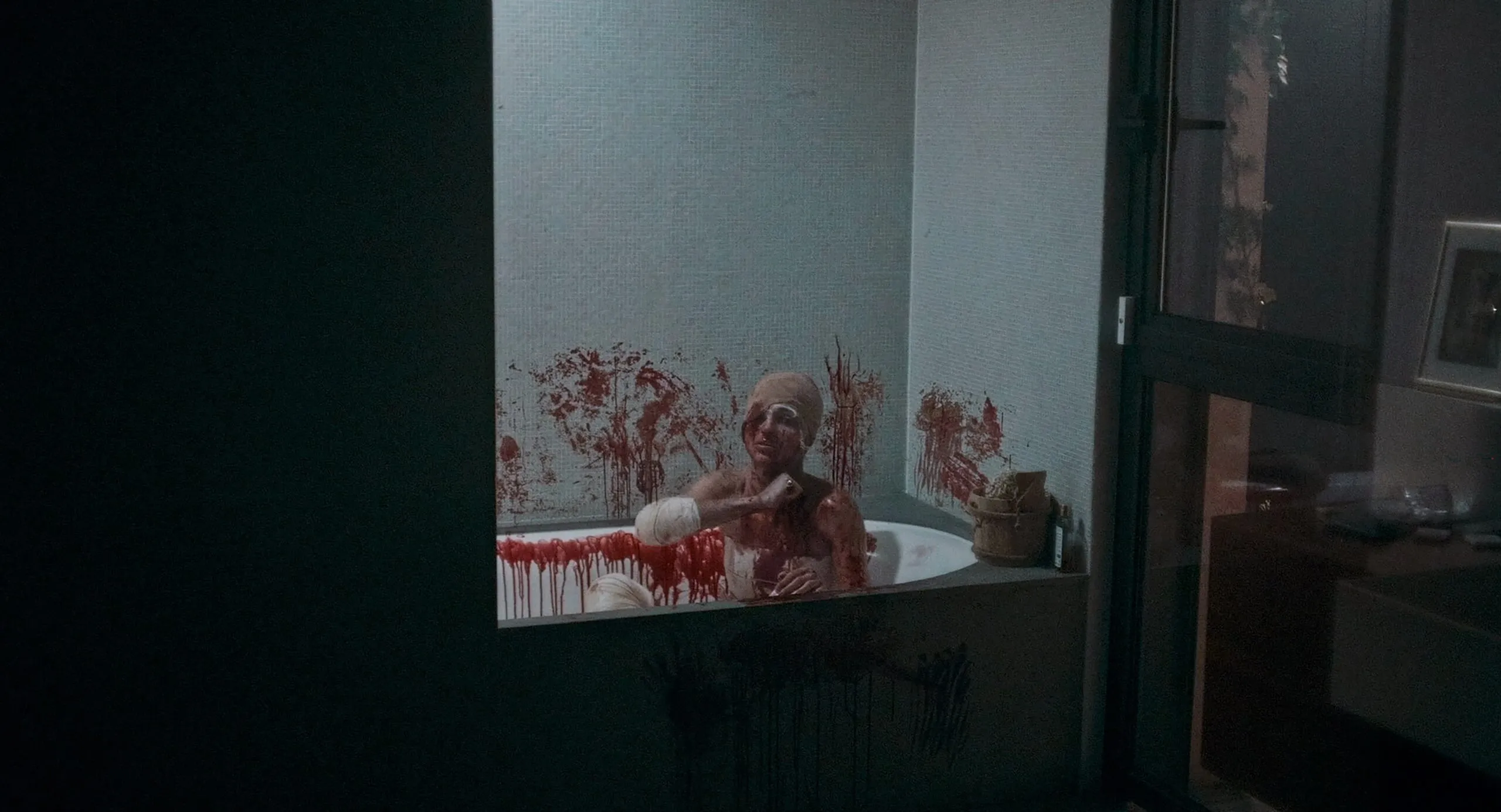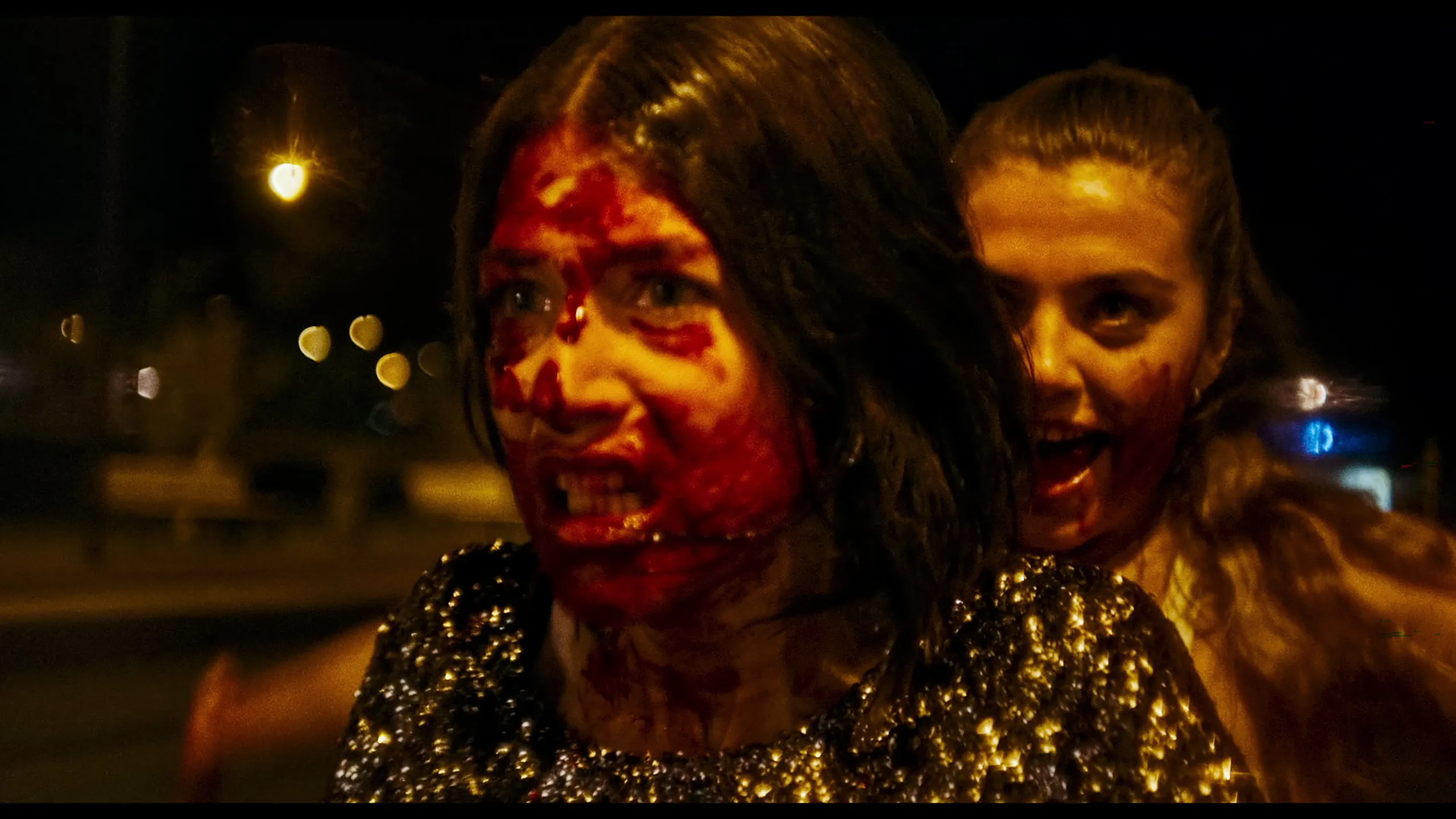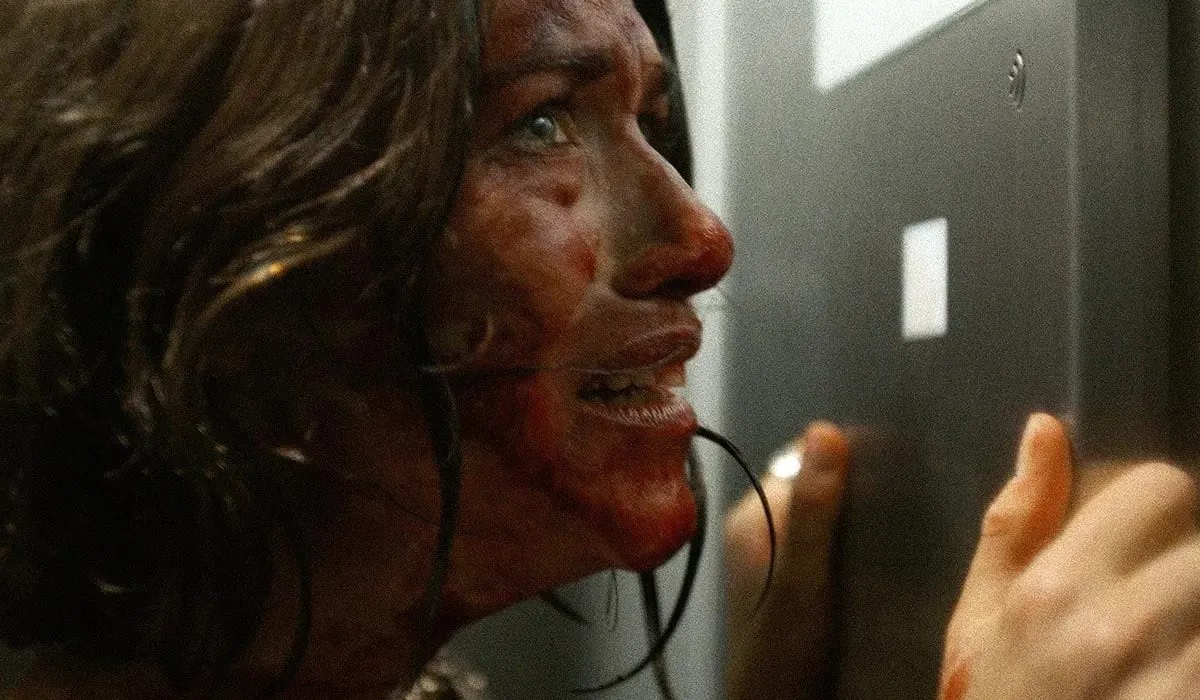David Moreau’s directorial debut, MadS, wasted no time in pulling viewers into a state of unease. The 2024 French horror film begins on a warm summer evening as graduation celebrations are kicking into high gear. 18-year-old Romain stops by his dealer’s place seeking some party favors before joining the revelry. Little does he know that an encounter on the drive home will ignite a harrowing chain of events unfolding over the next traumatic hours in real-time.
Shot entirely in a continuous take, MadS immediately immerses the audience in Romain’s frazzled perspective. When a mysterious injured woman climbs into his car, her disturbing behavior leaves more questions than answers. As her condition deteriorates behind the wheel, it becomes clear something sinister is spreading. Romain’s blissful night out quickly devolves into a desperate fight for survival. Through it all, Moreau’s fluid camerawork keeps viewers constantly unsettled, never allowing a moment to process what new horrors might be just around the bend.
Moreau plunges headfirst into pulse-pounding terror with this technical tour de force. Fusing influences from zombie outbreak flicks to the French extreme tradition, MadS promises a harrowing ride through a disintegrating reality. Told without traditional editing, the film fully commits to heightening each suspenseful moment as chaos closes in from all sides. By the conclusion of its 90-minute running time, audiences will be left as shell-shocked as Romain over the brute force with which an ordinary evening can transform into madness. Buckle up for Moreau’s uniquely unnerving vision of panic in real-time.
A Night of Mystery and Mayhem
It’s a sweltering summer night in some sleepy French village as 18-year-old Romain prepares to celebrate his graduation in style. He stops by his dealer looking to spice up the party with some new product—little does he know the chaos that small purchase will soon unleash. Once loaded up, Romain slides into his father’s Mustang, windows down as the evening breeze rolls in.
It isn’t long before something strange disrupts the calm. A woman, barely clinging to consciousness, flags Romain down on the side of the road. She’s wrapped head to toe in bloodied bandages, unable to speak but clearly frantic. Romain makes the split decision to help, hoping to get her medical attention fast. Yet as she settles into the passenger seat, her condition drastically declines. What ensues is a whole lot of questions with few answers.
From there, Romain’s carefree cruise descends into mayhem. The mystery woman’s untimely demise leaves him rattled and unsure who—or what—he just encountered. Nevertheless, he charges ahead with his graduation plans, linking up with girlfriend Anais at the rager. But strange symptoms are emerging, and Romain can’t seem to escape their sinister implications no matter how far the party goes.
As the contagion takes hold, the perspective shifts to bring us deeper into the chaos. We see through Anais’ eyes as the infection takes a strange psychological toll. Then things really go off the rails following new character Julia, whose frantic flight for survival makes for some truly nail-biting moments. But no matter who’s guiding the way, one thing’s clear: there will be no emergency aid swooping in to save the day. Some greater threat has been unleashed, and now it’s a race against time to outrun the terrors of one catastrophic night.
By the film’s haunting conclusion, more mysteries have emerged than answers provided. MadS leaves its audience as unsettled as poor Romain, faced with unknown enemies closing in from all sides in the dead of night.
A Tour de Force of Filmmaking
Folks will be talking about the technique in MadS for a while; I can feel it. David Moreau didn’t just opt for a single-take format; he demanded total immersion through seamless long shots. Cinematographer Philip Lozano rose to the immense challenge, gliding that camera fluidly from scene to scene. Their daring work means viewers get swept up in the terror right beside our panicked protagonists.
Some shots simply floor me with their complexity. When Romain aims to wash bloody reminders of that ride down a drain, the shot maneuvers through the garage with him. It’s pure adrenaline seeing their vision unfold without cut. And a tense train station sequence pulls off an incredible feat, the director building anxiety from within the swarming crowd. I could watch that bit over and over to catch each detail, still amazed they puppeteered such movement in camera.
This full-bodied technique absolutely fuels the nonstop tension. Removed from the crutch of cutting away, we’re trapped right by Romain’s side as horrors close in. Some scenes drag slightly, true, but Moreau clearly understood how perspective enhances confusion in this kind of escalating chaos. Might a traditional edit shade things differently? Sure, yet this style makes MadS an utterly absorbing panic attack from start to finish.
Great technique doesn’t always make a great film alone, however. Some moments could have tightened pacing with trims. Yet Moreau proves himself a master puppeteer, conducting the camera like an orchestra to dreadful effect. His team took immense risks to realize this technical triumph—risks that just may raise the bar for modern one-shot thrillers. MadS will stay with me for the breathless terror of its uninterrupted vision.
Raw Performances in the Chaos
The challenging one-take format of MadS demanded next-level commitment from its cast. Having to maintain continuity without cuts, the actors lived every grueling moment by Romain’s side. Their physicality drove the constant sense of disarray. None pulled it off better than Lucille Guillaume in her unforgettable scenes.
Gripping the film at its peak, Lucille embodied pure, unbridled madness overtaking a person. As Anais, her descent into frenzied anarchy gripped me in a way few screen depictions of losing your mind ever have. You truly believed this was a woman being consumed from within, even while battling to maintain her rapidly fracturing grasp on reality. It’s a tour de force of subtle yet visceral acting that lingers with me.
The characters may not have received the depth usual films allow, but in this case distraction served the pandemonium. We didn’t need to know these teens for longer than the night destiny tore through their lives. All that mattered was feeling every ounce of visceral panic pouring off the performers in real-time. So often films rely on plot, but MadS proves top-notch acting can grip an audience even without extensive character development.
Moreau asked the world of this young cast, seamlessly orchestrating chaos through their desperate struggles. Performing their own stunts in those fluid shots, they threw everything into honoring his singular vision. Their tenacious, spirited performances brought the tour-de-force technique to life through every nerve-fraying frame. Even with less time to shine, each actor left an impression that’ll stick with me after the final shocks.
Cultivating Dread in the Darkness
Moreau plays on familiar zombie outbreak lore, embracing the genre’s penchant for hopelessness. But what could feel run-of-the-mill borrows intrigue from MadS’s tightlipped storytelling. Never does the film clarify just what virulent force has taken hold in this rural French community.
Viewers spiral alongside the characters, left grasping for answers that never come. We share their panic without reassuring context of how global catastrophe plays out. The ambiguity keeps us as unmoored and uncertain as poor Romain on his unwitting plunge into plague. Darkly comic moments provide brief levity, yet the unrelenting grim tone soon reasserts itself.
This shroud of mystery cultivates an air of malaise. Unable to gauge the true scope of danger, we feel the oppressive walls of chaos closing in, just as our heroes experience. Their spiral into obscurity reflects how catastrophes often unfold—not with overt warning but with creeping dread as reality warps around the uninformed.
If only Moreau resisted thriller tropes in the conclusion. Predictable climaxes undercut the escalating suspense so skillfully sown. After madly compelling us with disquiet, signposted scare tactics feel a letdown from the film’s shrewd manipulation of mystery and menace.
Even with closing missteps, MadS proves a disturbing showcase of how ambiguity fuels anxiety far beyond standard shocks and splatter. The film festers with an unshakable mood of bleakness, highly engaging for fans who appreciate being unsettled more than satisfied.
A Director’s Daring Debut
By drawing from his past in French extreme cinema, David Moreau signaled he wouldn’t shy away from raw intensity with MadS. His unflinching 2006 thriller Them showed his prowess for crafting tight suspense. In MadS, he elevates pulverizing dread to an art form, putting viewers through a true endurance test.
It’s easy to see Gaspar Noe’s blood-soaked Irreversible as an influence in MadS’ unflinching violence. But Moreau carves his own niche with a documentary-like perspective, trailing subjects in the manner of Alan Clarke’s harrowing Elephant. This gritty real-time method leaves no opportunity for looking away from the horrors cascading in.
Moreau toys with convention by refusing standard plot progression. Perhaps starting from the grim conclusion could have heightened unease even more. Yet this abrasive fly-on-the-wall technique succeeded in its own right at sustaining a bleak suffocation.
On an ultra-shoestring budget no less, Moreau’s technical wizardry in a single continuous take stands out as extraordinary. His maiden voyage as director proves a stunningly assured nightmare brought to life solely through young talents fully embracing each grueling moment.
Fans willing to weather pitch-black dread will find much to admire in Moreau’s unflinching vision. His talent shines through a raw, unpolished terror constructed through sheer force of will. Audiences craving something far darker than the typical mainstream scare will find much to admire in this daring debut.
An Unforgettable Nightmare Worth Enduring
Through its daring one-take approach and flashes of French extreme violence, MadS left me feeling battered yet bound to director David Moreau’s singular vision. He guides viewers on a harrowing plunge into the depths of a disintegrating reality with technical mastery. While ambiguous plot points strain believability at its end, Moreau’s triumph is igniting relentless tension through each claustrophobic frame.
Lucille Guillaume delivers a performance to unsettle the strongest stomachs as psychological terrors consume her. Philip Lozano’s fluid camerawork couples with committed young leads to keep anxiety swelling to unbearable heights. Moreau sustains an atmosphere of malignant gloom through Romero and Irreversible as clear inspirations.
Though lighter on narrative substance, MadS Powerful achieves its goal as a jittery endurance test. Fans craving a nerve-shredding scare without reprieve will find Moreau’s debut a harrowing siege on the senses. While predictability in the climax disappoints, this technical tour de force is an unpolished gem worth seeing strictly for visual bravery alone.
Ultimately, MadS gets under the skin and burrows in deep, creating visceral unease not easily shaken. While not a flawless frightfest, Moreau’s low-budget nightmare is nothing if not boldly unrestrained, landing it a solid recommendation for diehardgenre fans willing to endure its rougher edges.
The Review
MadS
MadS is an imperfect but admirably ambitious directorial debut from David Moreau. Through committed performances and jaw-dropping long takes, it sustains an unsettling atmosphere of mounting dread. While clumsy plot points mar the conclusion, Moreau's technical achievements and unrelenting tension throughout the tour de force single take make MadS a memorable endurance test for horror aficionados.
PROS
- Phenomenal technical execution of the single-take format
- Sustained sense of tension and unease throughout
- Standout performances, especially from Lucille Guillaume
- Unrelenting bleak tone and visceral violence
CONS
- Paper-thin character development
- Ambiguous plot points aren't fully satisfying.
- Predictable climax diminishes suspense
- Narrative suffers in the final act









































